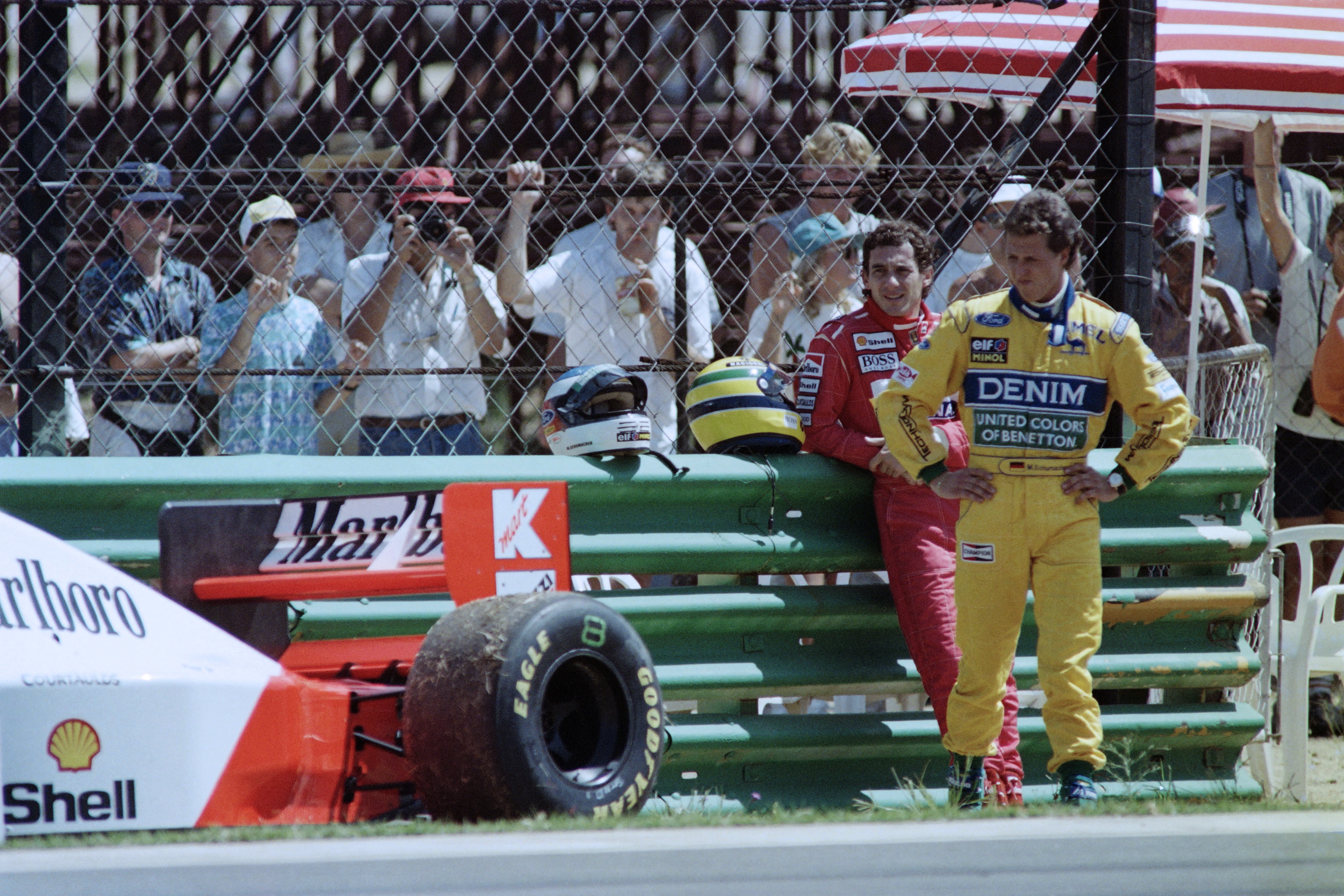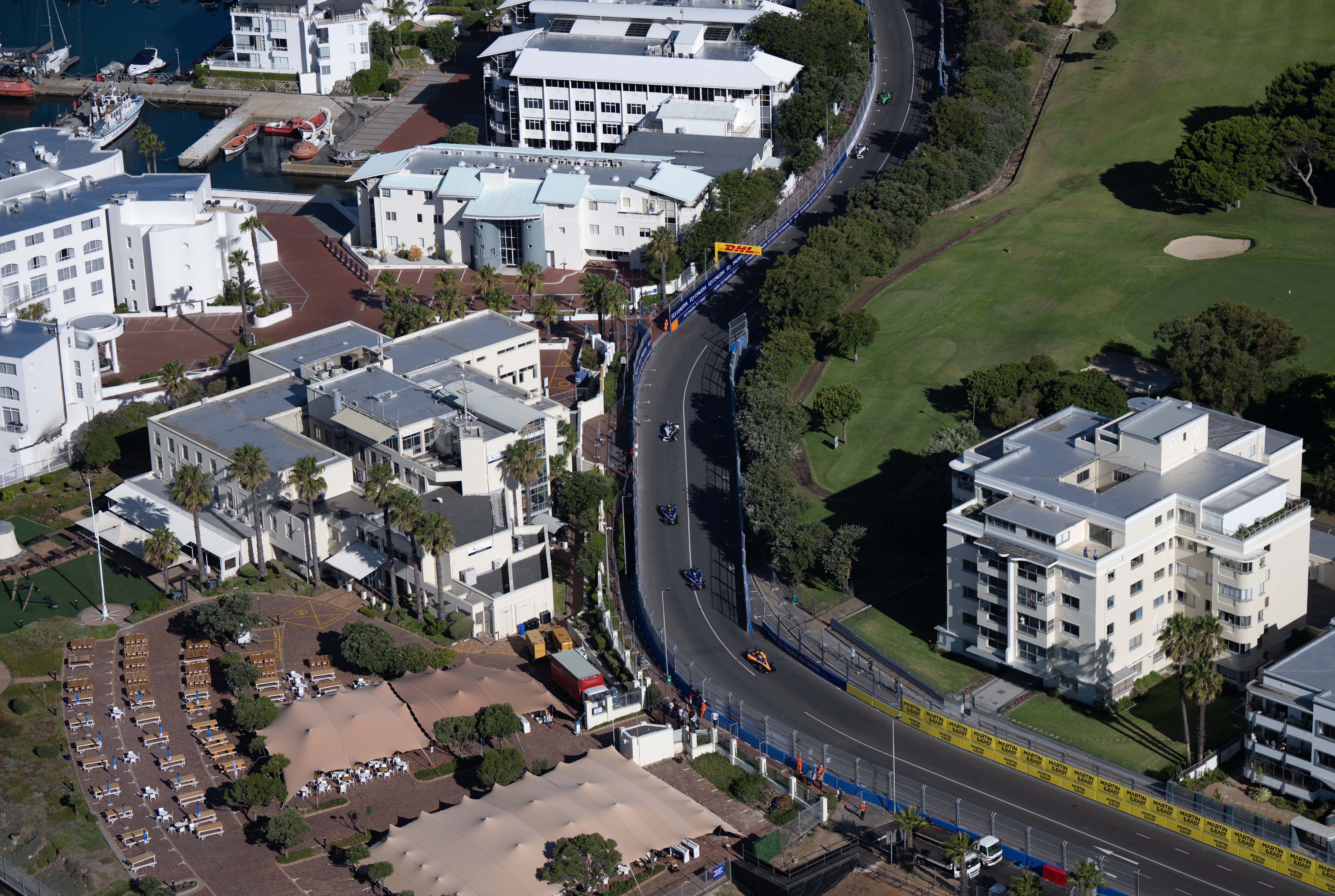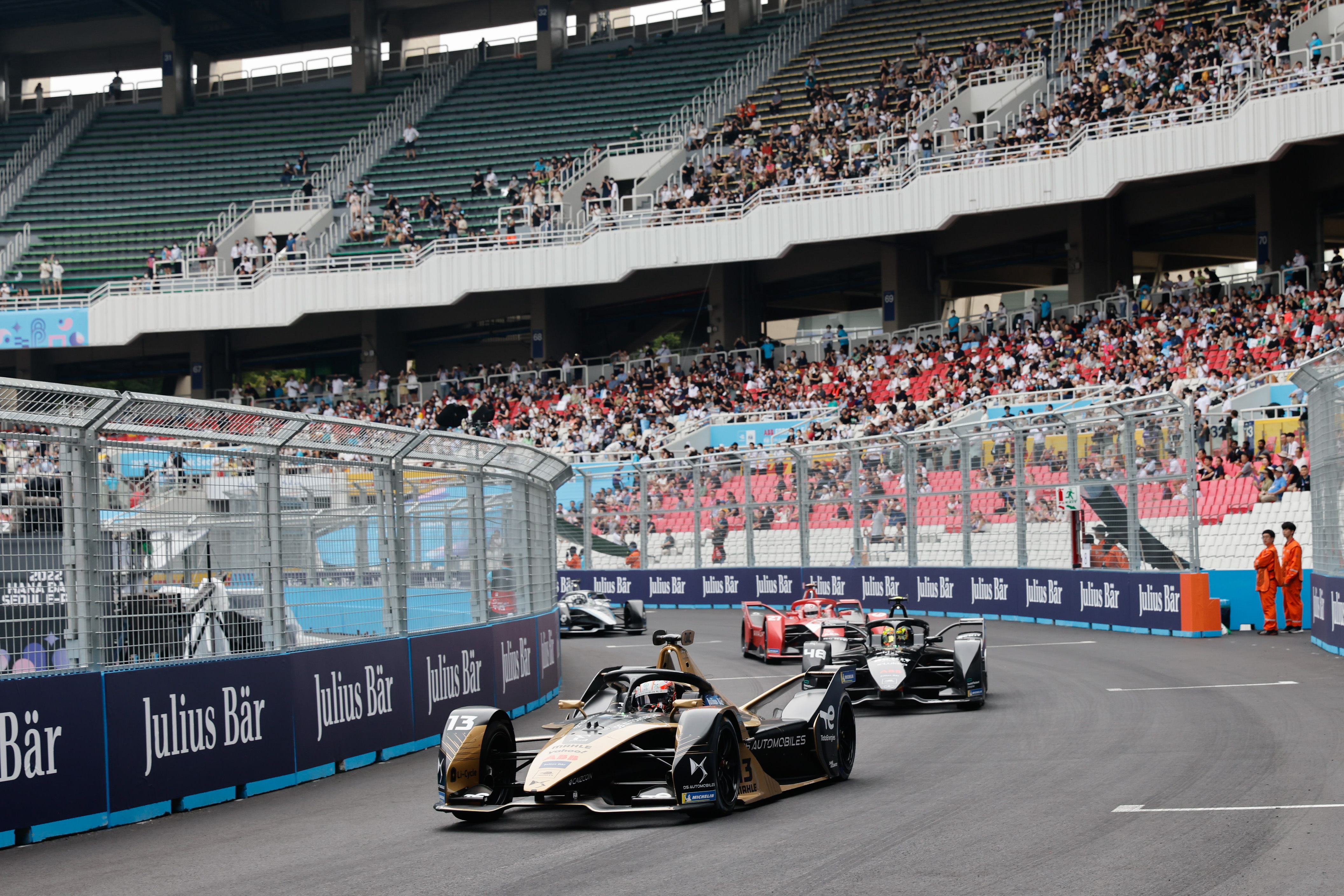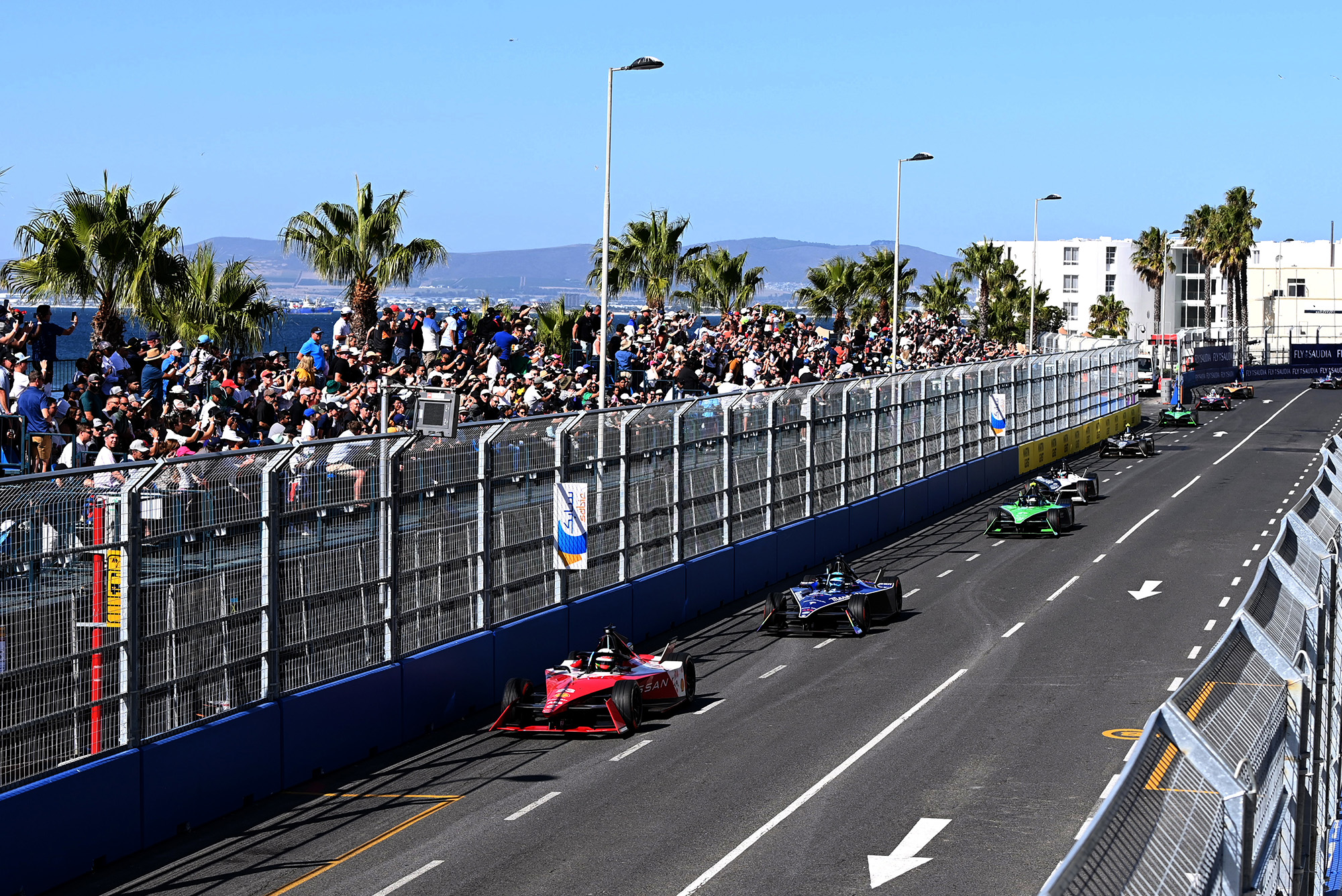Kyalami Grand Prix Circuit, 14 March 1993. The opening race of the Formula 1 World Championship. It was the second year since F1’s return to South Africa after isolation due to the government’s apartheid policies.
Reigning world champion Nigel Mansell was absent. The Briton had left F1 to race in IndyCar in the US. This meant there was no defending champion on the grid for the first time since 1974.
Despite that, the race was full of drama, as it saw some of the sport’s most famous drivers, including Alain Prost, Ayrton Senna and Michael Schumacher face off in front of an expectant Johannesburg crowd.
Only seven drivers were awarded a final classification, with the rest of the grid retiring at various points throughout the race.
Of the seven who finished, only the top two drivers completed the entire 72 laps. When the chequered flag fell, victory was awarded to Williams’s Prost. Completing the podium was his former teammate Senna and Ligier’s Mark Blundell.
However, despite the exciting on-track action, this was the last time F1, or any other single-seater world championship race, took place in South Africa for 30 years – until Formula E raced in Cape Town in 2023.
 German driver Michael Schumacher (right) and Brazilian driver Ayrton Senna wait at the track side after losing control of their cars in the Continental curve during the last qualifying practice of the South Africa Formula One Grand Prix at Kyalami on 13 March 1993. (Photo: Guy Tillim / AFP)
German driver Michael Schumacher (right) and Brazilian driver Ayrton Senna wait at the track side after losing control of their cars in the Continental curve during the last qualifying practice of the South Africa Formula One Grand Prix at Kyalami on 13 March 1993. (Photo: Guy Tillim / AFP)
High costs
Ultimately, the exorbitant cost of hosting a Grand Prix prevented F1 returning to Kyalami in the ensuing seasons. The track was sold in 1993, and the new owners were unable to host a Formula 1 race at a profit, so the South African Grand Prix was scrapped.
The decision to withdraw South Africa from the calendar brought an end to an iconic period of racing in South Africa that began in 1934 in East London in the Eastern Cape.
The first South African Grand Prix (not F1 World Championship) was hosted at East London’s Prince George Circuit in 1934. The circuit was initially a street race through parts of East London, but a more permanent track was built after World War 2.
The new track opened in 1959, and kept the name of its predecessor, and would be the site for the first Formula 1 World Championship race to take place in South Africa. This meant that drivers would earn points by competing in the race, which would affect their rankings in the official F1 championship.
The race took place in December 1962 and was won by two-time F1 world champion Graham Hill, who in the process claimed his first F1 title. East London played host to three more F1 races in the following years before the location was shifted to the Kyalami Grand Prix Circuit in 1967.
Kyalami, which was built in 1961, became the official location of the South African Grand Prix until it fell off the calendar, first in 1986 and later in 1994.
As international pressure and sanctions on South Africa began to mount in the 1980s, due to apartheid policies, South Africa’s place on the F1 calendar was quickly becoming untenable. In 1985, which was the same year the apartheid regime declared a state of emergency, some teams began to boycott F1 racing in the country.
French teams Renault and Ligier did not participate in the 1985 South African Grand Prix, due to the French government’s ban on all sporting events in the country. However, French drivers Prost and Phillipe Streiff, who both drove for British teams, attended the race, despite their government’s opposition.
That was to be the end of F1’s involvement with apartheid South Africa, as just days after the race, the FIA announced that F1 would not return to the country because of its apartheid policies.
The sport briefly returned for two seasons, in 1992 and 1993, with South Africa on the road to democracy and after international sanctions against the government were lifted.
However, due to the significant financial cost of hosting a Grand Prix, South Africa was unable to keep its place on the F1 calendar, leaving fans without a single-seater world championship race for 30 years.
 The Cape Town E-Prix track. (Photo: supplied by Formula E)
The Cape Town E-Prix track. (Photo: supplied by Formula E)
 The new generation of Formula E cars can reach top speeds of 322km/h. In 2023, Cape Town was the first African city to host a Grand Prix. (Photo: Supplied by Formula E)
The new generation of Formula E cars can reach top speeds of 322km/h. In 2023, Cape Town was the first African city to host a Grand Prix. (Photo: Supplied by Formula E)
Return to South Africa
More than two decades later, talks to bring a world championship race back to South Africa began in earnest. This finally culminated in the 2023 Formula E Cape Town E-Prix, on the iconic streets of Green Point.
The 25 February race proved to be a fan favourite, with the grandstands selling out before the race. The on-track action did not disappoint, with Antonio Felix da Costa taking his only win of the season, ahead of Jean-Éric Vergne in second, and Nick Cassidy in third.
Read more in Daily Maverick: Da Costa races to a dramatic and historic victory at Cape Town E-Prix
South African-born Jaguar TCS team principal James Barclay understood the significance of the race for motorsport in South Africa.
“World championships are different because they mean so much more. It is also very important to bring world championship motorsport to South Africa because it is a way of inspiring future generations about what they can do, and what they’re fully capable of doing,” Barclay said.
Barclay believes that to create a meaningful and long-lasting impact in the country, the championship needs to make South Africa a regular destination on the calendar.
“Coming back once is one thing, but you want to come back for five to 10 years. I think that will change the industry in South Africa because when you have international motorsport with international teams, with international drivers, it will help build the motorsport industry, which has a really proud history in South Africa.”
Plans to bring back the world’s most sustainable motorsport, which created a significant boost to the local and national economy, are already under way.
Iain Banner, chairperson and founder of e-Movement, the local promoters of the Cape Town E-Prix, explained that Formula E will make a return.
“After staging such a successful maiden E-prix in Cape Town, we had to consider how to ensure that the future of the race is sustained,” he said.
Read more in Daily Maverick: Formula E’s first visit to Cape Town put the city under a global spotlight, and it shone
“This requires a commercial strategy that allows for the race to be funded. Four major initiatives have been launched as part of this strategy, including Africa’s Green Economy Summit, Formula Student Africa, the electric festival and the electric vehicle road trip.
“Finally, our NPO, GO GREEN Africa, aims to drive both corporates and individuals towards a green transition. With all these initiatives in place, we can celebrate annually with the staging of Formula E Cape Town.
“Our intent is to be racing again in February 2025, subject to finalising all the commercial requirements to stage the race on an annual basis in future.”
“We are working hard to ensure that we can bring back this event in the future, to ensure that South African motorsport fans are exposed to world-class racing on their doorsteps.” DM




 The new generation of Formula E cars can reach top speeds of 322km/h. Cape Town is the first African city to host a Grand Prix in 2023. (Photo: Supplied by Formula E)
The new generation of Formula E cars can reach top speeds of 322km/h. Cape Town is the first African city to host a Grand Prix in 2023. (Photo: Supplied by Formula E)